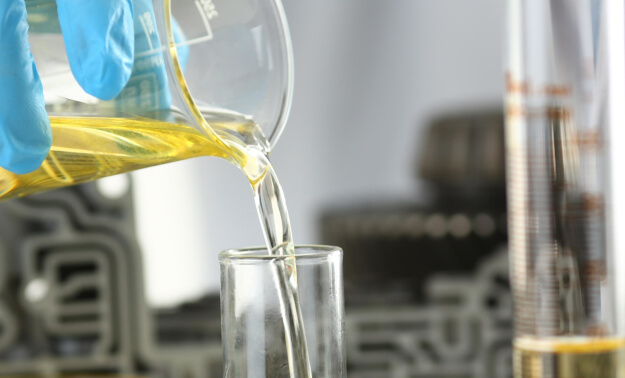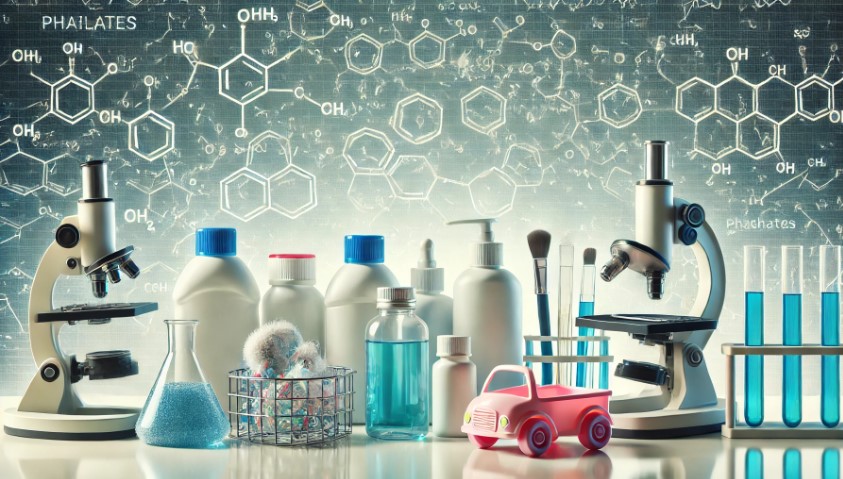Why Top Quality Chemical Products Are Necessary for Manufacturing and Manufacturing
Why Top Quality Chemical Products Are Necessary for Manufacturing and Manufacturing
Blog Article
A Comprehensive Guide to Evaluating Chemical Products for Ideal Integrated Solutions in Production and Beyond
In the progressively complex landscape of manufacturing, the analysis of chemical products stands as a pivotal element in achieving incorporated solutions that prioritize security, effectiveness, and sustainability. This comprehensive guide describes important facets such as regulatory compliance, product compatibility, and cost-effectiveness, all while highlighting the significance of environmental stewardship. Understanding these components not only alleviates risks but also placements companies for advancement and long-term development. As we explore these vital elements, the inquiry occurs: how can these evaluations be changed into workable techniques that propel your organization onward?
Comprehending Regulative Conformity
In the world of production, recognizing regulatory compliance is vital for ensuring both item safety and environmental management. Regulative frameworks, such as the Occupational Security and Health And Wellness Management (OSHA) requirements and the Environmental Security Agency (EPA) laws, determine the risk-free handling, storage, and disposal of chemical items. Compliance with these regulations not just safeguards workers but additionally lessens environmental impact and enhances a firm's track record.
Makers should carefully examine the chemical substances they use, making sure adherence to the relevant safety information sheets (SDS) and labeling needs, which supply vital info regarding threats and risk-free usage. Remaining abreast of industry-specific policies, such as the Enrollment, Assessment, Authorisation and Constraint of Chemicals (REACH) in Europe, is crucial for preserving compliance and preventing possible legal ramifications.
Routine audits and training are necessary parts of a thorough compliance strategy, cultivating a culture of safety and awareness amongst staff members. By focusing on regulative compliance, makers can alleviate danger, improve operational efficiency, and add to lasting techniques within the market, ultimately resulting in enhanced item top quality and client complete satisfaction.
Assessing Product Compatibility
Governing conformity sets the structure for risk-free manufacturing techniques, yet examining product compatibility is just as crucial for operational effectiveness and safety. Chemical Products. Item compatibility refers to the ability of various chemical compounds to coexist without damaging interactions that can jeopardize the honesty of procedures or products. A detailed evaluation starts with comprehending the chemical properties, including sensitivity, solubility, and stability under various problems
Producers should conduct compatibility screening to identify prospective responses that may occur when chemicals are combined or enter into contact with one an additional. This includes reviewing factors such as temperature variants, stress changes, and the visibility of pollutants. It is additionally essential to take into consideration the effects of materials used in containers, pipelines, and tools, as these can influence chemical behavior and efficiency.
In addition, suppliers need to analyze the possible influence of item compatibility on end-user applications. Inappropriate items can result in operational disturbances, product failures, and safety and security threats, which can harm online reputation and economic standing. Therefore, a systematic approach to analyzing item compatibility not just enhances functional performance yet likewise makes sure the safety and dependability of chemical products throughout their lifecycle.
Assessing Cost-Effectiveness
Evaluating cost-effectiveness is critical for makers aiming to maximize their chemical production procedures while preserving success. This assessment begins with a detailed evaluation of both straight and indirect expenses related to chemical items. Direct prices incorporate the purchase rate of chemicals, transportation, and storage space, while indirect expenses may consist of labor, upkeep, and overhead costs.
To effectively review cost-effectiveness, producers need to employ an overall price of possession (TCO) method. This method makes it possible for a detailed understanding of all expenses throughout the item lifecycle, from procurement to disposal. In addition, the usage of efficiency metrics-- such as return prices and process efficiency-- can supply insights right into exactly how well chemical items add to general manufacturing goals.
Benchmarking versus industry standards can additionally highlight possible areas for price reduction or renovation. By comparing their prices and performance with rivals, makers can identify ideal methods and ingenious options.
Additionally, involving vendors in discussions concerning prices, volume discounts, and lasting agreements might generate positive monetary setups. Inevitably, a critical concentrate on cost-effectiveness sustains not only earnings yet also sustainability in the affordable landscape of chemical production.
Analyzing Environmental Impact

One important aspect is the selection of resources. Lasting site web sourcing can considerably minimize negative impacts, as sustainable or much less unsafe products often result in reduce emissions and fewer hazardous results. Additionally, producers must take into consideration pop over to these guys the efficiency of their production procedures; maximizing these can minimize waste and energy consumption.
In addition, product solution plays a vital role in establishing environmental safety. Using green chemistry concepts can bring about the advancement of more secure, less polluting choices. Producers ought to likewise examine end-of-life scenarios for their products, promoting recycling or risk-free disposal practices to alleviate lasting ecological consequences.
Incorporating these considerations into item examination not just enhances business duty but also lines up with boosting customer need for eco-friendly items. Chemical Products. Inevitably, an extensive analysis of environmental impact is important for fostering sustainable manufacturing methods
Carrying Out Quality Assurance Actions
The dedication to lasting methods and environmental security naturally includes the implementation of quality assurance steps within manufacturing processes. Quality assurance is important for guaranteeing that chemical products meet predefined standards and guidelines, consequently guarding not just item efficacy but also environmental stability.
To efficiently implement quality assurance procedures, suppliers must embrace a methodical strategy, starting with the facility of clear top quality criteria. This includes specifying specifications for basic materials, intermediate items, and final results. Regular testing and assessment protocols click this site ought to be instituted to monitor compliance with these standards throughout the production cycle.

Educating and engaging personnel in quality control practices is equally important. An educated workforce contributes to a culture of high quality and responsibility, boosting total functional performance. Ultimately, rigorous quality control measures not only guarantee compliance however likewise fortify the brand name's reputation and foster trust fund amongst customers, lining up with the overarching goals of sustainability and safety in the chemical production field.
Final Thought
In conclusion, the analysis of chemical products requires a thorough understanding of regulative compliance, product compatibility, cost-effectiveness, and ecological impact. This guide offers as a vital source for achieving these important objectives in chemical product examination - Chemical Products.
Report this page